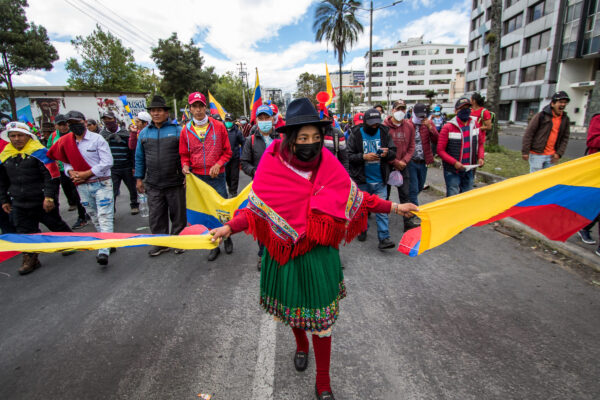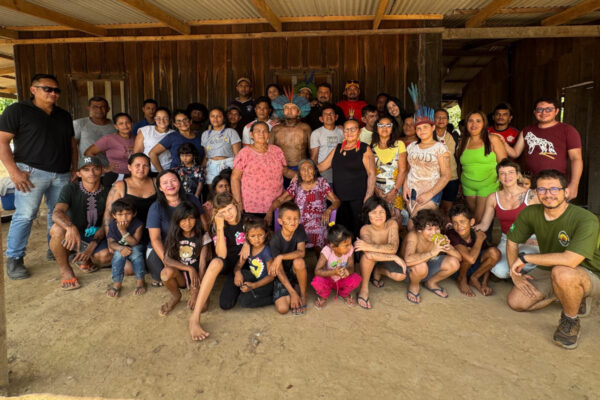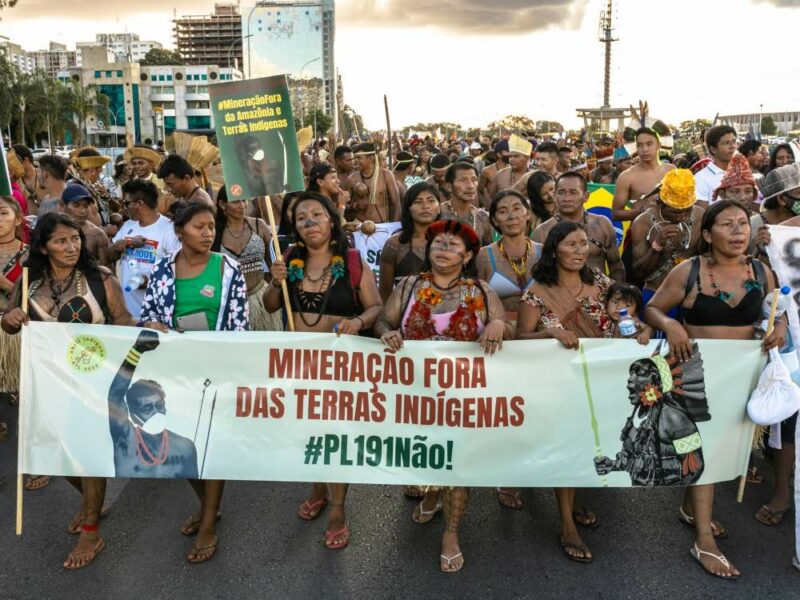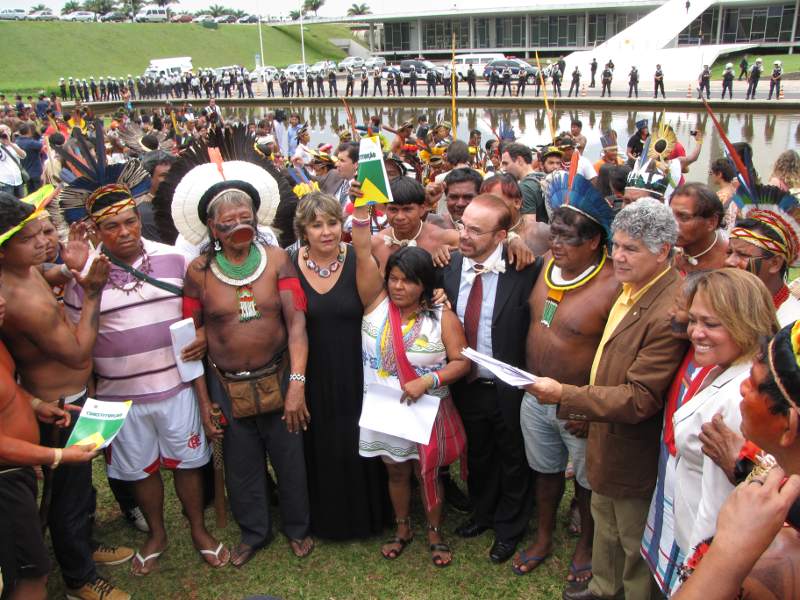
From North to South America and around the world, the ascendency of authoritarian leaders portends dangerous days ahead. Such trends manifest starkly through Donald Trump’s election in the U.S. and the impeachment of President Dilma Rousseff in Brazil. Yet at the same time, remarkable stories continue to emerge of determined resistance to these brutal regressions, led by the continent’s indigenous peoples from the Amazon to Standing Rock.
Such imbalanced struggles are most striking because they inspire hope in times of crisis. Against the odds, the collective action of Brazil’s indigenous movement – like the resilient, water and land protectors at Standing Rock – is blazing new pathways toward justice and leading a vital, global movement from the grassroots.
Hard-fought victories from within Brazil’s embattled democracy help tell this story. Following the contentious and dubious impeachment of President Rousseff, the unelected regime of Michel Temer has gone about dismantling Brazil’s social and environmental order. Seeking to slash critical social spending and undermine fundamental ecological protections, his government wasted no time in implementing a wish list of budget-cutting and de-regulation “reforms” long sought by a conservative political elite unable to win the last four presidential elections.
Under the dubious rationale that such draconian measures are needed to streamline “cumbersome” environmental licensing and boost global investor confidence in order to pull the country from its dire economic doldrums, the Temer government is sponsoring Constitutional Amendment (PEC) 241, which would constitutionally enshrine drastic cuts to government spending for twenty years. Among the losers in this reallocation of funds from social services like health and education toward the servicing of the country’s growing debt, the National Indigenous Foundation (FUNAI) would see its budget cut to the bone.
Today’s snowballing threats to the wellbeing of Brazil’s indigenous peoples, embodied by an belligerent agribusiness sector, dam-driven energy policies, and reckless industrial mining interests, demand a strong federal indigenous agency to act as a counterbalance and watchdog. The gutting of FUNAI can therefore be seen as a deliberate effort to eviscerate indigenous resistance when it’s needed most to defend rights and territories.
Similarly, Brazil’s Health Ministry recently attempted to undermine its indigenous healthcare system by issuing two sweeping ordinances. The response from indigenous organizations was swift and decisive: drawing off of the success of July’s “occupy FUNAI” movement, which denounced the current assault on indigenous rights and blocked the nomination of a military general to head the agency, the country’s indigenous movement just days ago assembled 600 community leaders in Brasilia to demand the immediate cancellation of the ordinances.
In a testament to the power of this grassroots movement, Health Minister Ricardo Barros immediately backtracked, revoking the ordinances and signing a statement guaranteeing strengthened indigenous participation in their healthcare system.
“Once again, the indigenous movement took a step forward, demonstrating its strength as [Barros] backed all of our demands,” said Sônia Guajajara, coordinator of the National Indigenous Association (APIB).
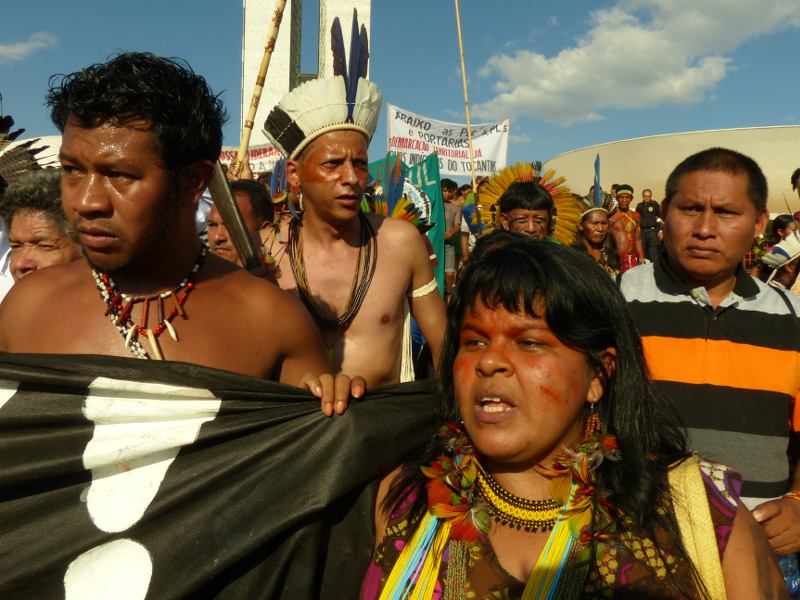
Thanking its Brazilian and international partners for supporting the struggle, APIB declared: “we mobilized against the Temer government’s intention to revert and suppress the rights we fought hard to win over the last two decades. This experience demonstrates once again that we can only defend our achievements and the respect for our rights through collective struggle, organized response, and strong mobilization and pressure.”
Stopping an unacceptable candidate from assuming FUNAI’s presidency and defending the indigenous management of health services may appear to be small victories, but they are nonetheless significant against the backdrop of negativity and defeat currently hanging over Brazil’s progressive movement. Reeling from an impeachment led in part by an ultra-right wing political insurgency which ushered in a president with a glaringly absent popular mandate, the country’s progressives must rally around and replicate such victories for rights and democracy.
Brazil’s indigenous movement thus provides important lessons for others countries experiencing their own setbacks. As the United States endures an ultra-conservative regression that seeks to roll back decades of positive, progressive change, those of us who care about the environment, human rights, and dignity for all must look to indigenous peoples for determined and principled leadership, like that currently exemplified by the water protectors peacefully fighting to stop the Dakota Access pipeline.
Now more than ever, these stories of indigenous leadership must inspire and orient our resistance against the grim reality we collectively face. The stakes could not be higher.


